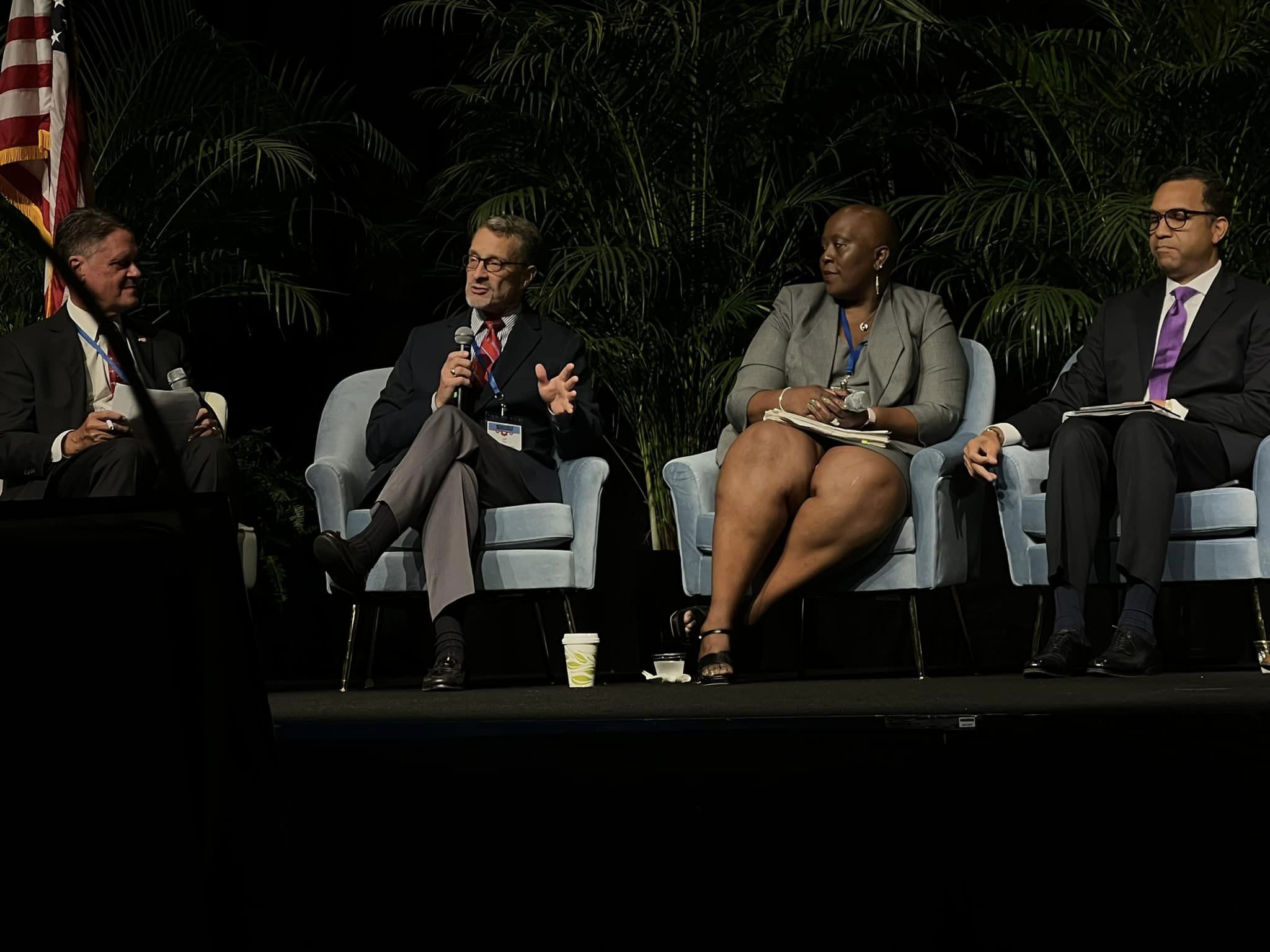
South Carolina Commission on Higher Education President and Executive Director Dr. Jeff Perez emphasized the critical role of higher education in workforce development at the South Carolina Chamber of Commerce’s 2024 Workforce Development Symposium Sept. 12. As a panelist, Perez explained the importance of partnerships between educational institutions, businesses, and government agencies to meet the state's evolving workforce demands.
Here are five key takeaways from Perez's remarks during the "Workforce Development Through the Lens of Higher Education" panel discussion:
1. Higher education fuels workforce development
Higher education plays a vital role in driving economic growth by developing a highly skilled workforce, Perez said. He underscored the importance of collaboration between institutions of higher learning, government agencies, and businesses to align educational programs with workforce needs. He said this collaboration is essential to creating graduates who can meet the demands of South Carolina’s economy.
“We are deeply aware of the importance of relationships between campuses and local businesses,” Perez said.
He also emphasized the importance of small businesses and that higher education institutions must engage with these businesses to ensure graduates are prepared to support them.
2. The proof is in the job market
"Colleges are in the jobs business," he noted, reinforcing the strong correlation between higher education and employment. He added that while the higher education sector faces disruption from demographic shifts, technological advancements, and changing public perception, the fundamental value of a college degree remains.
As a proof point, he noted that studies show college graduates, on average, earn significantly more over their lifetimes compared to those with only a high school diploma—up to $1 million more with a bachelor’s degree.
3. A seamless education pipeline is crucial
From an agency leadership perspective, Perez highlighted the CHE’s commitment to making higher education part of a seamless pipeline from pre-K to graduate school so that students are supported throughout their educational journey. He said the CHE’s work in this process involves bringing together key stakeholders—business owners, legislators, families, students, and educational institutions—to foster a coordinated approach.
He also praised the state's Coordinating Council for Workforce Development as a "national model" for effectively aligning higher education with workforce needs. This collaboration “helps make sure that we're aligned and that the campuses are producing graduates to fill the jobs that we need here in South Carolina, to build the brightest future we possibly can.”
4. Higher education must be nimble and responsive
The global pandemic showed how agile South Carolina's colleges and universities could be, Perez said, as they transitioned quickly from in-person to online learning.
“In a matter of weeks, they went from being fully on campus to being fully online,” he said. “The nimbleness that campuses demonstrating was something that I don't think they even expected to be able to do. But that spirit has persisted, and I think as we are undergoing a period of change all the different communities have figured out what they're capable of doing out of necessity.”
He also pointed to changes in accreditation standards, noting that accrediting bodies are now more focused on flexibility, enabling colleges to innovate while still maintaining high standards. Perez stressed that higher education institutions are not only nimble but also eager to engage with businesses to help upskill the workforce.
5. Opportunities to engage South Carolina’s "Some College, No Degree" population
One of the most significant opportunities for South Carolina’s workforce is its untapped potential among the 450,000 residents who report having "some college, no degree."
Perez described this group as a "win-win" for both employers and educational institutions. By reaching out to these individuals and helping them complete their degrees, South Carolina could simultaneously fill critical job openings and provide individuals with the opportunity to increase their earning potential. He encouraged businesses to strengthen relationships with local colleges and universities to help upskill employees and leverage this large, available workforce.
Perez closed his remarks by urging business leaders to actively engage with higher education institutions to ensure that South Carolina's workforce continues to thrive.
"Our institutions are ready and willing to help," he said, noting that strong partnerships between business and education will continue to benefit South Carolina's economy.
